Description
ABSTRACT
Appraisal of the Legal and Policy Frameworks for Combating Climate Change in Nigeria
Bonnievolo Ecoma*
For decades, the world has been beset by a global phenomenon that threatens the existence of ecosystems on Earth. With time, risks and threats have worsened, just as advocacy and proactive steps towards curbing it have intensified. That global phenomenon is climate change. As a fundamental change in climatic patterns and conditions and as an environmental and human rights crisis of global concern, climate change has remained a topical issue on the agenda of governments, institutions and individuals. Given its transboundary nature and impact, it represents an immediate threat which requires global collective action. While previous persuasive approaches have yielded less than desired responses and actions by governments and people worldwide, the current approach is adopting an ‘all hands on deck’ method, which requires governments, institutions and individuals to key into the drive to combat climate change. This has resulted in adopting climate legislation to reduce anthropogenic contributions to the environmental crisis and ensure sustainable practices. In line with the global drive for climate change mitigation and adaptation, Nigeria adopted laws and policies aimed at curbing the global challenge from a national point of view. Against this background and relying on the doctrinal research method, this paper examines the legal and policy frameworks for combating climate change in Nigeria, intending to ascertain their adequacy or otherwise in addressing the challenge, mainly because of international climate change obligations.
Keywords: Climate, Legal, Change, Policy, Nigeria.
INTRODUCTION
Climate change has been identified as a leading human and environmental crisis of the 21st century.1 It constitutes a complex problem because of its long-term, uncertain timeframe, scales of occurrence, differential impacts and vulnerabilities, as well as equity and justice within the global power asymmetries.2 Anthropogenic activities have been identified as significant contributors to global warming3 and climate change, with the bulk of such contributions coming from developed countries and minute ones from developing countries. However, developing countries are projected to experience more significant impacts of climate change than developed countries.
*B.Sc. (Hons.), LL.B. (Hons.), BL.
- Debay Tadesse, ‘The impact of climate change in Africa’ [2010] Institute for Security Studies Paper 220 1.
- National Climate Change Policy for Nigeria (2021-2030) Document, 6.
- “Global warming is the long-term warming of the planet’s overall temperature which occurs when carbon dioxide and other air pollutants collect in the atmosphere and absorb sunlight and solar radiation that have bounced off the earth’s surface.” See National Geographic Society, ‘Global Warming’ (National Geographic, 14 December 2022 accessed 3 May 2023; Amanda MacMillan and Jeff Turrentine, ‘Global Warming 101’ (NRDC, 7 April 2021) accessed 3 May 2023.

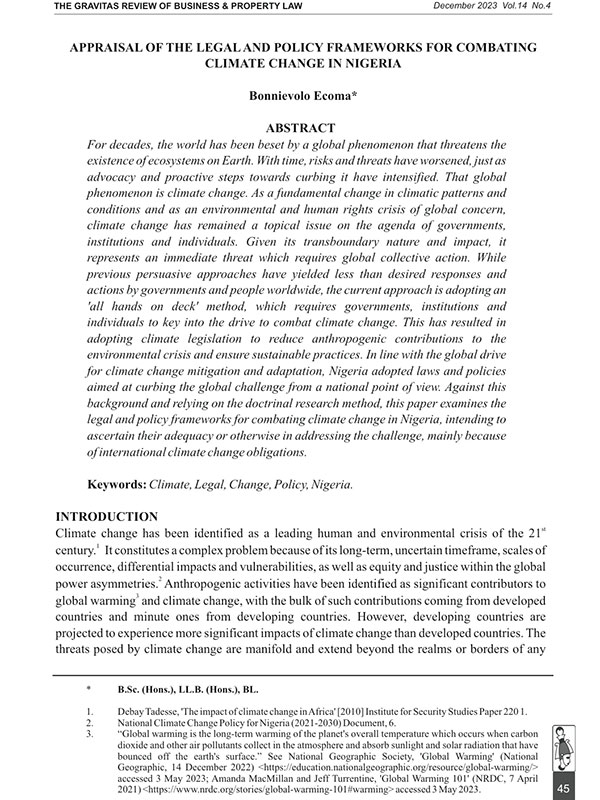
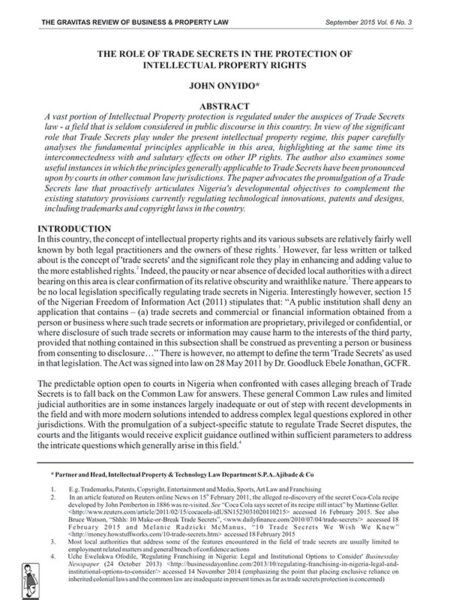
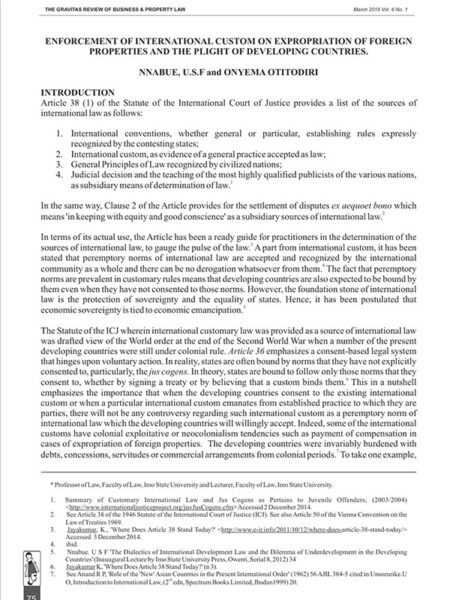
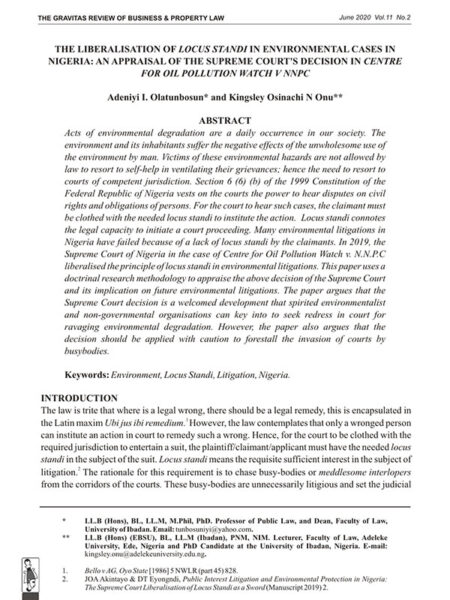
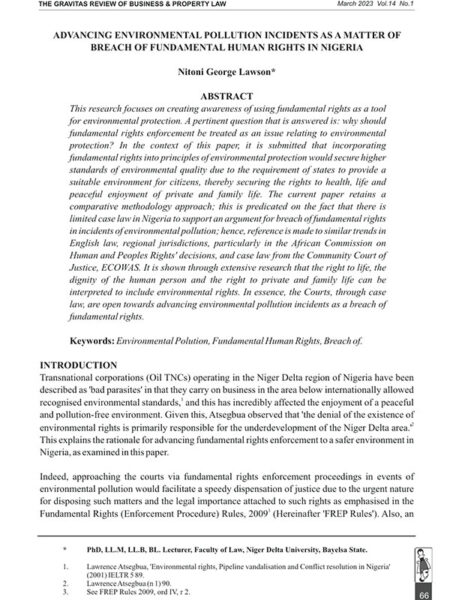


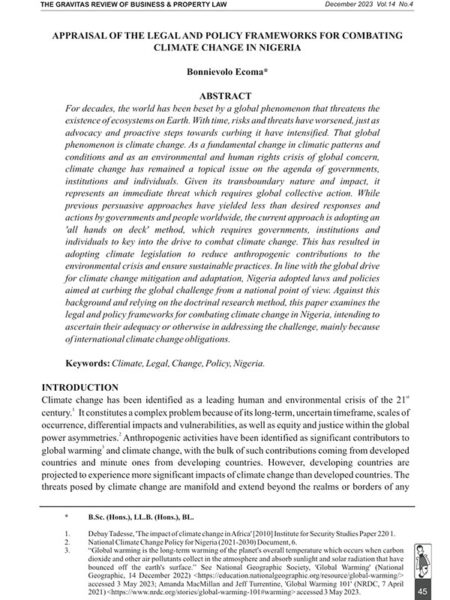
Reviews
There are no reviews yet.